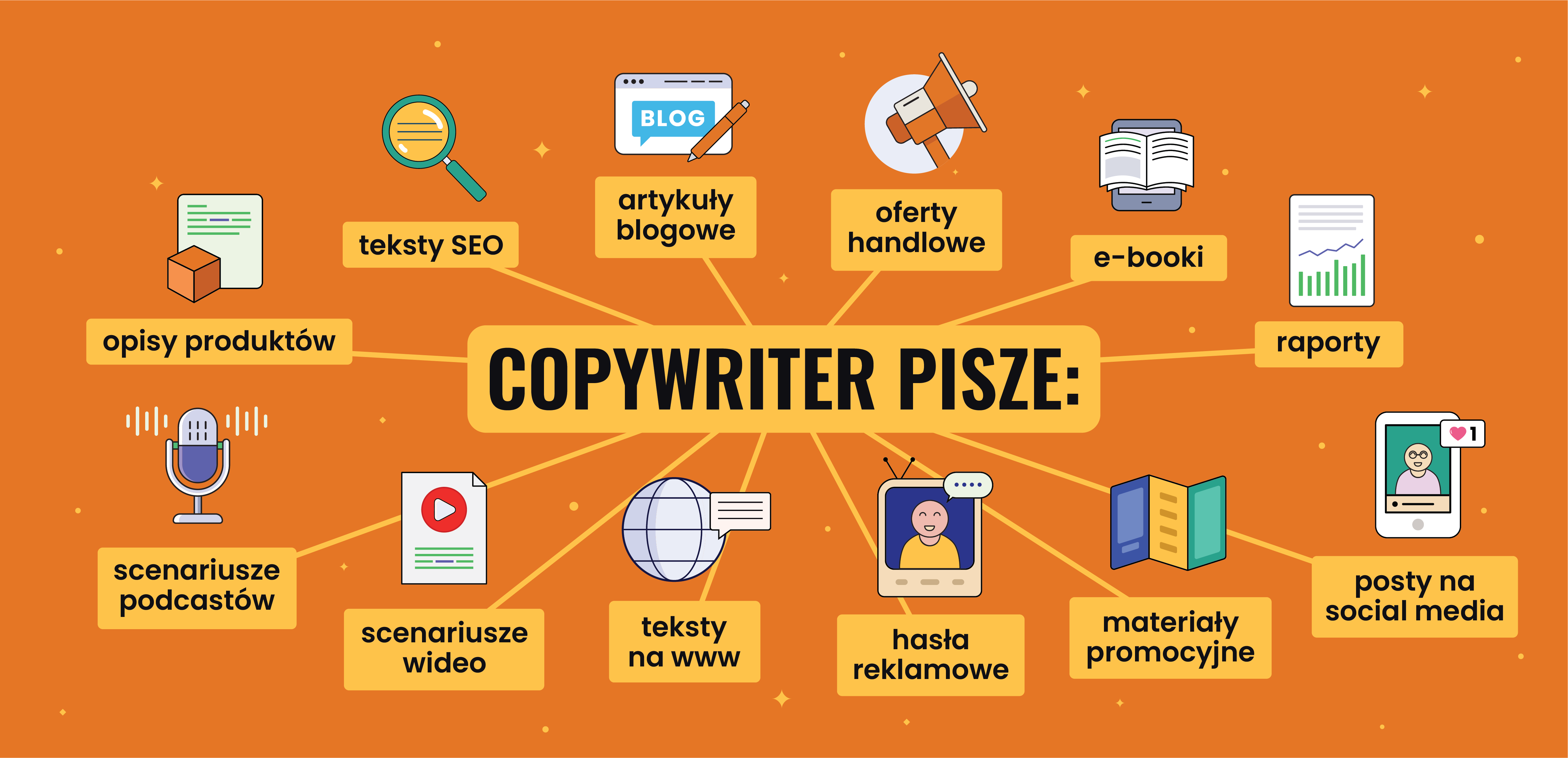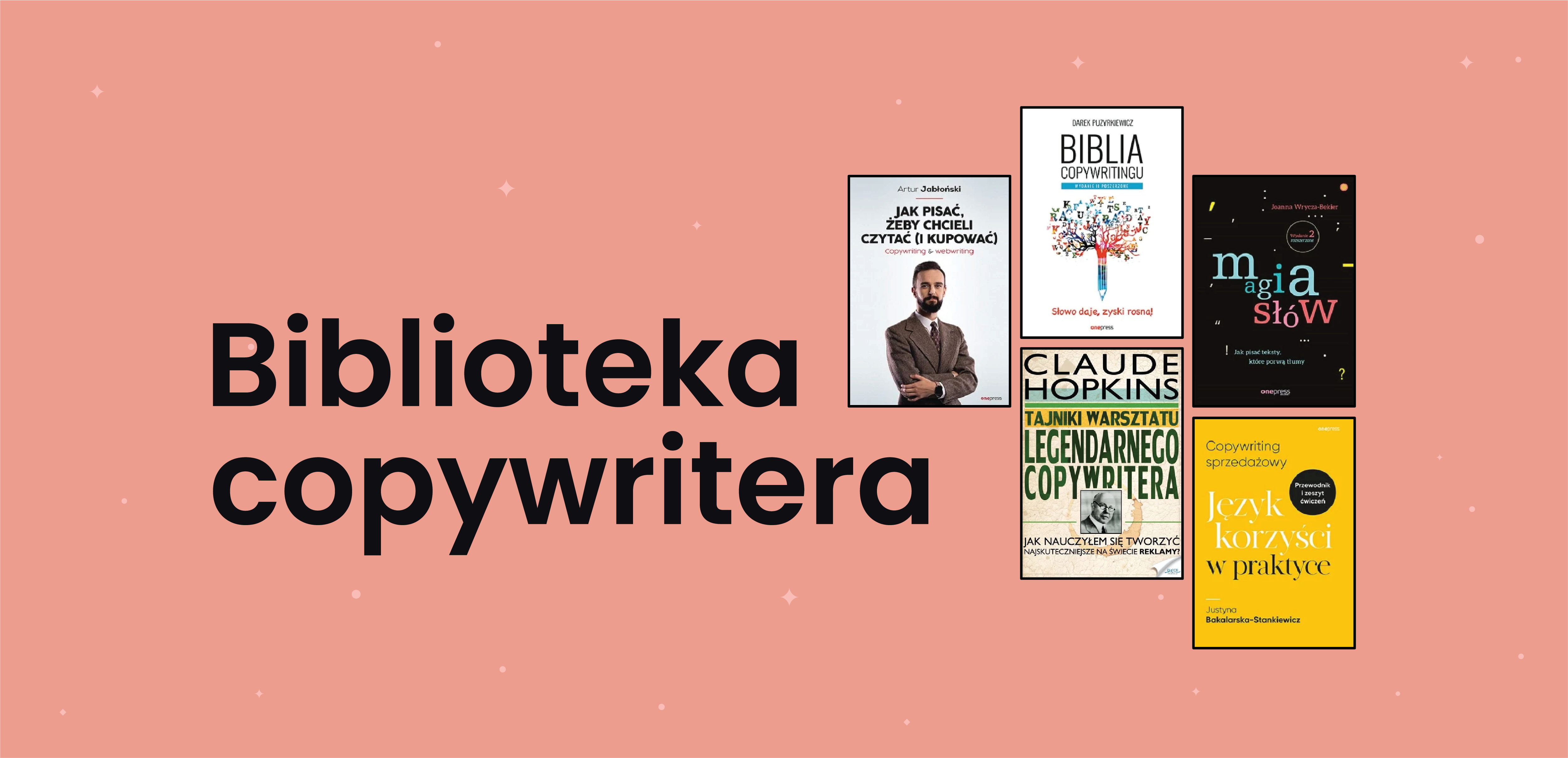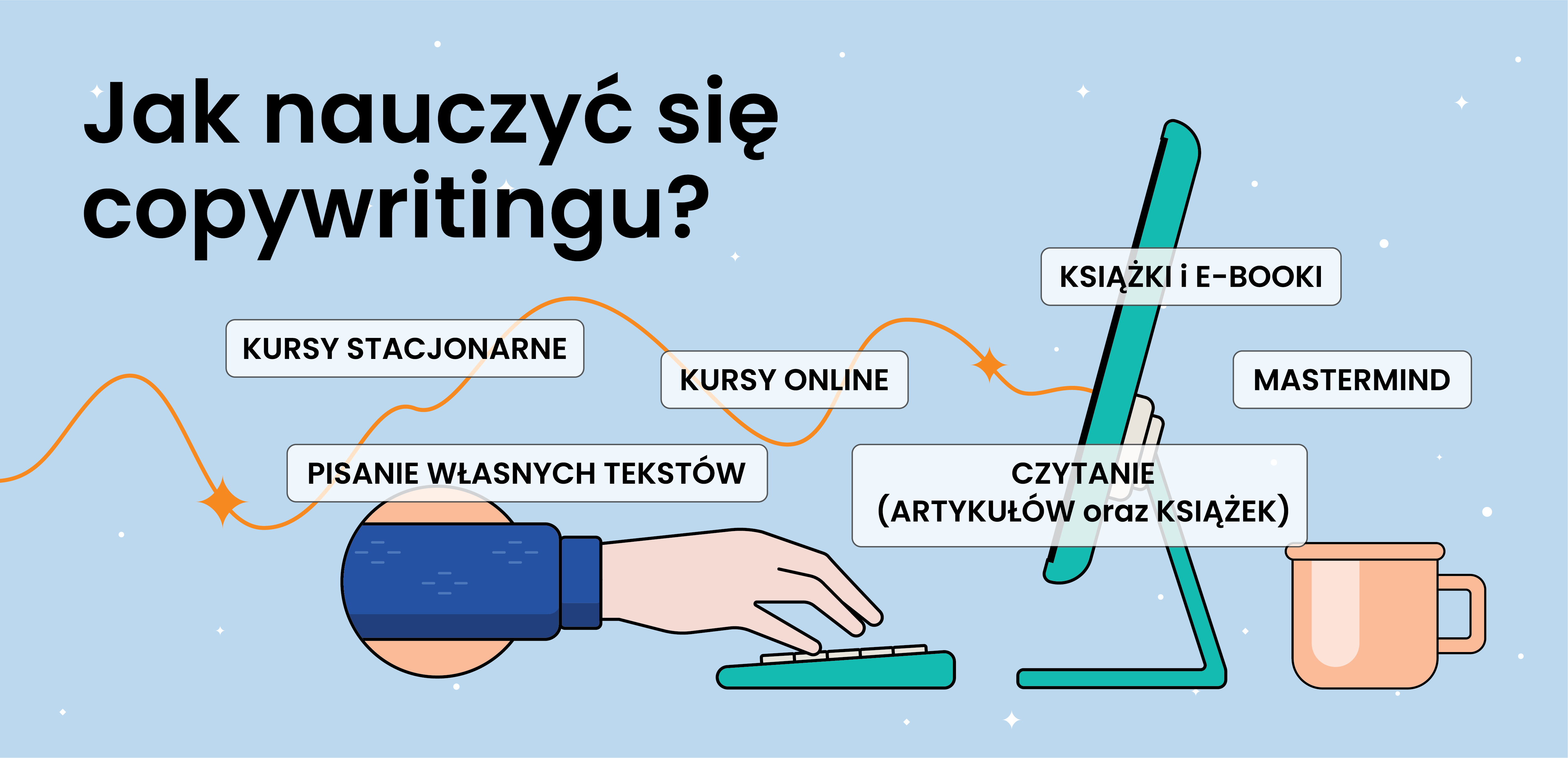More than 13 thousand. That’s how many results Google throws up after typing the phrase: “how to become a copywriter.” Texts on how to get started are so many because there is a steady increase in the number of people interested in copywriting. What is the reason for the boom in this profession? Many seem to think that anyone can write, so they want to try to make money from it. Some are attracted by the low entry threshold, while others are attracted by the possibility of self-employment. What does it look like in practice?.
Who really is a copywriter? Despite appearances, his work has little to do with copywriting, although some people think so, suggesting “copy” in the name. A copywriter is a person who earns money by creating content for both the Internet and for print. Depending on your needs and expectations, he or she may focus solely on writing or take part in the entire creative process.
Some copywriters are employed on a full-time basis in advertising and marketing agencies and companies with a high demand for texts, and some are self-employed. In the latter case, we speak of freelance copywriters. .
Why do the latter choose to look for assignments on their own? There are several reasons.
- .
- unlimited working time.You can write both two hours a day and ten. Sit in front of the computer every day or three days a week. You decide how much time you want to devote.
- A possibility to earn high income.Freelancers often earn more than salaried people, because they set their own rates and choose clients to work with.
- An opportunity to operate in different areas.If you want to specialize in a particular subject, you can do so. But no one will forbid you to write about everything in turn. Just create texts for blogs or offer clients a wide range of services.
- Work from anywhere on earth. In June you can write at your desk in your own home, while in July you can write on an exotic beach – just watch out for sand on your keyboard. 😉
The freelance copywriter is himself rudder, sailor and ship, but to make it not so sweet, it also has its bad sides. You’re the one responsible for finding clients, paying Social Security and taxes, keeping an eye on the accountant, and you have to remember deadlines and skillfully plan tasks so that you can get everything done in time..
Understanding the copywriting profession
.
If you’re up for it, try your hand at various assignments. “Copywriter writes texts” – this is a very general phrase, which includes a whole bunch of possibilities. .
What exactly does a copywriter do?
He works on creating:.
- product descriptions,
- auction descriptions,
- precels and back-end texts (although this is a dying genre),
- texts for SEO,
- articles for blogs,
- commercial offers,
- e-books,
- reports,
- texts for podcasts,
- texts for mailings,
- sponsored articles,
- text for websites,
- content for advertising flyers,
- advertising slogans,
- scripts for TV or radio commercials or YouTube videos,
- texts for print ads,
- posts for social media profiles,
- names of companies, services and products.
.
.
.
.
.
.
.
.
Uff, a bit of it came out, and it’s still not everything after all.
In fact, a copywriter can write any content. Provided he or she has the right qualifications. What does “appropriate” mean in this case? First of all, he must be able to write well. .
It’s not about the mythical light pen, it’s just that he should be able to:.
- proficiently transfer thoughts to paper,
- translate the incomprehensible,
- involve the story,
- encourage specific activities.
.
.
.
If you want to be a freelance copywriter you need the skills of in-depth reaserch, correct writing – knowledge of spelling and punctuation rules is a must, knowledge of SEO, and an open mind – you will be expanding your knowledge of the topics you will come to write about all the time. .
It’s not that copywriters can only become people with a degree in Polish studies or journalism, but they certainly have an easier time getting started. A psychologist or pharmacist will do just as well in copywriting, as long as they like writing and want to develop themselves. Sometimes clients are looking exclusively for people with broad industry knowledge – this is an ideal opportunity for such candidates. .

Copywriter to copywriter is not equal!
.
Staying on the topic of the diversity of a copywriter’s work, we should talk about specializations. This is an important aspect, because – I know from experience – there is a chance that you will not fall in love with absolutely all forms of content that you will come to create..
This, among other reasons, is why over the years the copywriting profession has been divided into several factions. .
This division includes:.
- creative copywriters – those responsible for naming, creating advertising slogans, scripts for ads, etc.
- SEO copywriters – those writing blog articles, synonymized articles, product descriptions, etc. that affect search engine positioning
- content writers– who create content that requires in-depth reaserch, such as e-books, sponsored articles, text for websites, etc.
- social media copywriters – preparing posts for various social media.
.
.
.
Read also: Copywriter, content writer, SEO copywriter – who they are and how they differ from each other?.
Preparing for work as a copywriter
.
Do you feel that you could find yourself in any of these specialties? Great, then start learning..
In this profession, the basis will always be to practice your craft. To do this, you simply have to write. A lot and often. And then critically evaluate your works. Only just patting the keyboard endlessly is usually not enough if you do not know the basics. Fortunately, effective writing – especially when you want to create sales texts – can be taught. .
On the Internet, you’ll find plenty of courses and training provided by those well-known in the industry. You can get the knowledge contained in them on your own, but if you care about not wasting your time, buy access and actually actively participate in the subsequent lessons of, for example, “Effective copywriting” by Artur Jablonski..
A good way to expand your knowledge of copywriting is to read industry books.
To start with, I recommend, among others:.
- “How to write to make them want to read (and buy)”. Artur Jablonski,
- “Techniques of the workshop of a legendary copywriter” by Claude Hopkins,
- “The Magic of Words. How to write texts that will captivate crowds” by Joanna Wrycza-Bekier,
- “The Bible of Copywriting” by Dariusz Puzyrkiewicz,
- “Sales Copywriting. Benefit language in practice” by Justyna Bakalarska-Stankiewicz.
.
.
.
.
.

Overall, you should learn what SEO is and what SEO copywriting looks like. If you look through portals with orders, you will realize that there are really a lot of orders for texts for SEO, so it pays to explore the topic – know the basic concepts, know where to look for keywords and how to place them in the content. This will open up new opportunities for you. .
At the same time, try to exercise your creativity. This trait really comes in handy when working as a copywriter. How to do it? If you’ve read our previous articles, you probably know that a piece of paper and a pen or a charged smartphone to jot down your ideas whenever they come to mind are essential. Do you have a title for the text you want to create? Try to come up with ten versions of it. Or create a chain of associations. Despite appearances, creativity is not a gift from heaven. It can be worked out. So can strategic thinking. .
If you want to be a freelance copywriter, you need to plan. No one will tell you to write this today and this tomorrow. You have to prioritize yourself, decide when you can give the brief to the client and by what date they will get the finished text. Therefore, without strategic thinking and awareness of the pace of work, you will not move..
The tip from me is that no matter how many courses you take or books you read – without applying the skills you’ve learned in practice, you won’t get far. For myself, after the first reading (because I often find myself going back to different books or courses, including years later), I write down a maximum of 3 things I want to test right away. And then I analyze the results. Then I know that my skills have a chance to grow and the texts become more and more effective. .
With each assignment, it will also be necessary to know the client’s target audience and the language of the industry. In this regard, it is easier – especially at the beginning – to choose, for example, two areas of interest and seek orders in them. .

What else should you do to become self-employed? Build a portfolio. .
How to get experience in copywriting?
.
We know, easier said, harder done. But virtually every principal will want to see you write. Some will ask for a trial assignment, while others will be interested in reviewing some of the texts you’ve produced so far..
How do you get content for your portfolio? You have three options.
- Write a blog
.
You can start a thematic blog where you write about your interests or share your thoughts. This way you will mobilize yourself to create regularly, while getting feedback.
- Make your first assignments
.
Seek assignments where experience is not required. These also sometimes happen. Just ask if you will be able to put texts in the portfolio, because with this it sometimes varies.
- Get an internship or apprenticeship at an advertising or marketing agency
.
In such a place you will learn a lot in a short time. Typically, these types of companies need very different content for their clients. Here, too, it’s a good idea to determine right away whether they agree to let you brag about these texts after the cooperation is over..
Beginning your business as a copywriter
.
If you finally determine that freelance copywriter is the profession for you, you can either register a sole proprietorship right away, or work on an unregistered business to begin with. .
As of July 1, 2023, the regulations on non-registered activities have changed. Currently, income from this type of work can be up to PLN 2,700, or 75% of the minimum wage. It’s a start-up idea, because this type of business doesn’t require filing Social Security declarations or, as the name suggests, registering for insurance. The only costs are income tax, but not paid monthly or quarterly but annually. Revenue and deductible expenses are shown in the annual return PIT-36. You don’t even need to keep accounting records, a simplified sales record is enough..
After exceeding the revenue, the business must be registered. Of course, you can immediately register your business and just start looking for customers. Here the choice is up to you. The registration itself is very simple – you just need to fill out a CEIDG-1 application, to which you can immediately attach a VAT registration application, if you want to be a VAT payer, and a Social Security application document. After that, you still need to set up a bank account and decide whether you will handle the accounting yourself or with the help of an office. .
Registering the company itself is a snap. What’s more difficult is finding the first clients who will want to use your services. You can look for them:
- on assignment portals, such as Useme, Text Exchange or Good Content,
- on industry groups on Facebook,
- on LinkedIna,
- writing to advertising and marketing agencies.
.
.
.
When you find principals, take care of them. No one will want to work with someone in the long run who doesn’t meet contracts, misses deadlines and reports delays, provides poor quality content or doesn’t respond to messages. If you want to be a freelancer, remember that business contacts are key. When you perform well, you are recommended. When the opposite is true, you can only expect criticism and dislike.
When looking for your path as a freelance copywriter, consider various sources of job opportunities. One place that can be extremely helpful in finding interesting assignments is the Jooble portal. It’s a platform that gathers job ads from many different online sources, making it easier to find a job that matches your skills and preferences.
Check out the remote job ads for copywriters on Jooble to find many interesting offers that can provide excellent challenges for a beginner or experienced copywriter.
Building your personal brand and growing your business
.
If you’re not on the Internet, you don’t exist. You know the saying? In the case of freelancers, this is indeed the case. Internet presence is mandatory.Let others know that you are active. To begin with, so as not to invest too much money, you can start by creating a Facebook fanpage and setting up a profile on LinkedIn. Later, as your business grows and time passes, also use other social media that your potential customers browse. .
Consider also building your own website. It can be just your virtual business card or a full website, for example, enhanced with a blog section. Well-written blog articles have a positive effect on both SEO and on convincing customers of your services. After all, this is where they will find a sample of your copywriting skills. .
After some time, you will build a base of customers who you can remind and who are willing to recommend you to their friends..
Tips for beginner copywriters – summary
.
Summarizing, what are our tips for beginning copywriters?
- Understand what copywriting iswhat capabilities you have and which skills are necessary to create content.
- Decide whether you want to specialize in one industry or write on multiple topics, prepare only articles for the blog, or at the same time texts for SEO and posts for social media publishing.
- Before you go freelance, prepare yourself well. Read some books or take a course, learn what SEO is and how to use keywords. Exercise your creativity, and don’t forget that as a freelancer you will have to plan everything yourself.
- Create a portfoliothat you will present to potential clients. Include the best texts in it.
- Register your businessright away, or make some extra money as an unregistered business to start with. All the while, look for clients and take care of them so that they want to recommend you.
- Remember to build your personal brand.Although it takes time and work, it definitely pays off.
.
.
.
.
.
.
Although the beginnings can be challenging, as competition in the market is steadily increasing, that doesn’t mean it’s not worth trying. More and more companies understand the importance of online presence, so they are looking for people to create content. One of them could be you..
 Iza Sykut
Iza Sykut